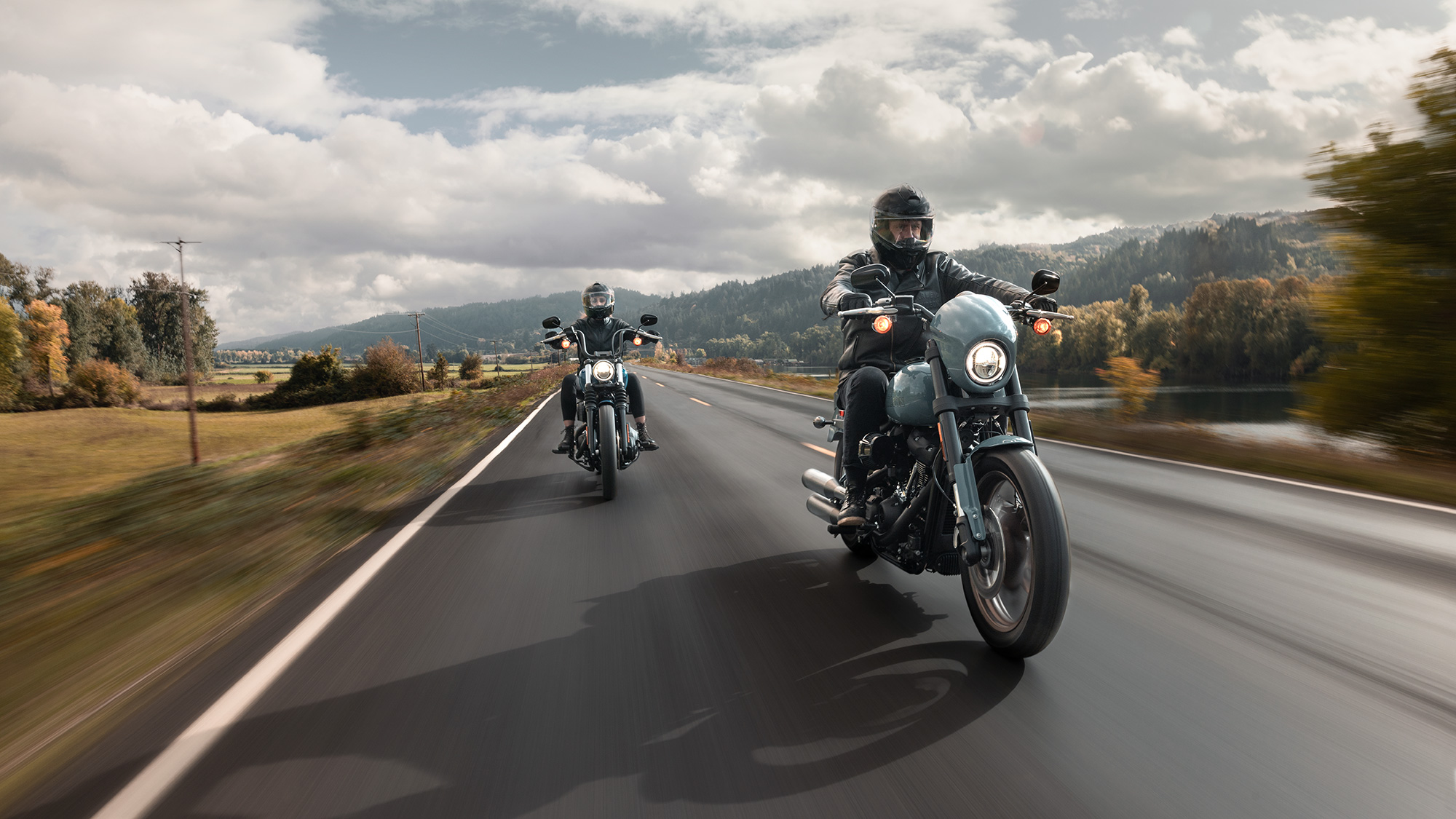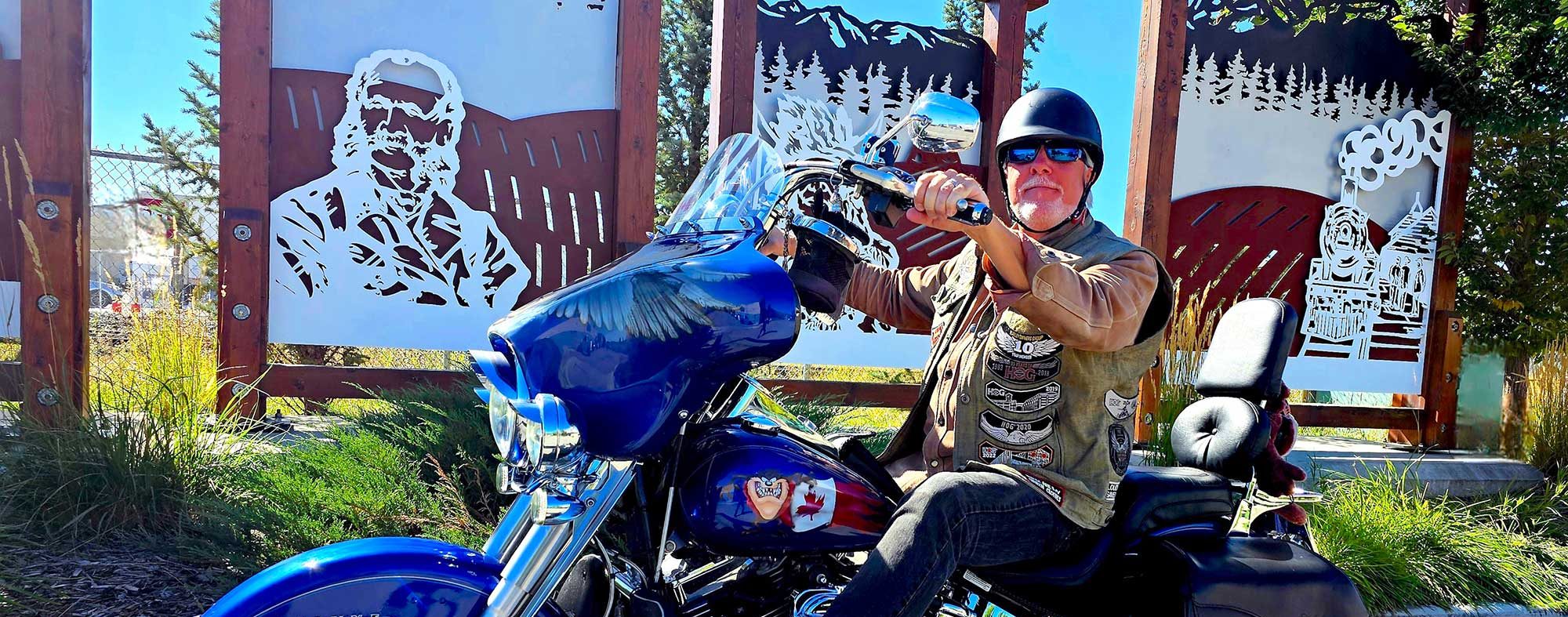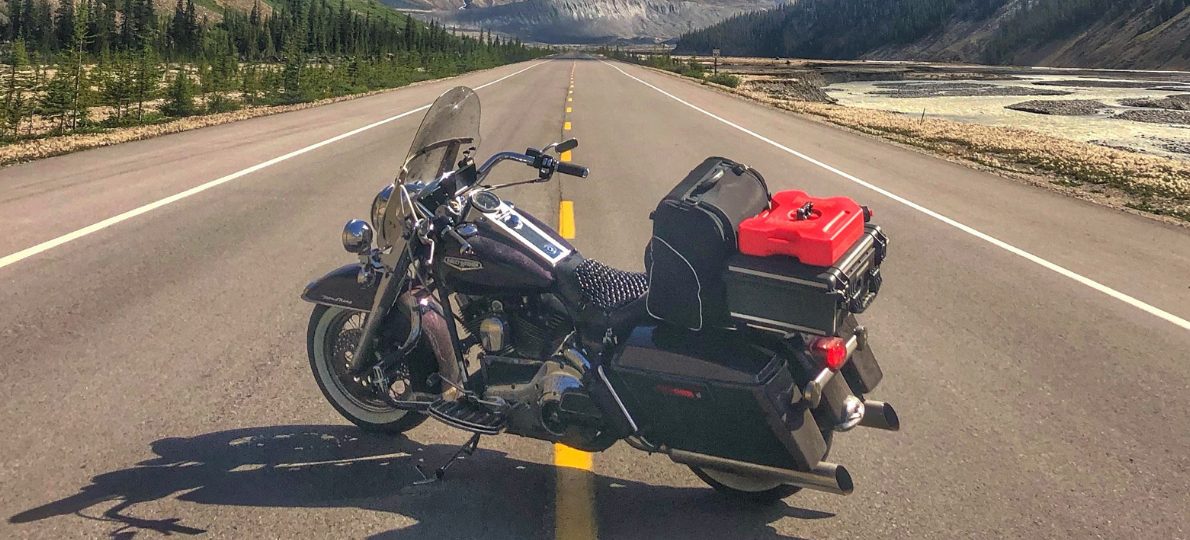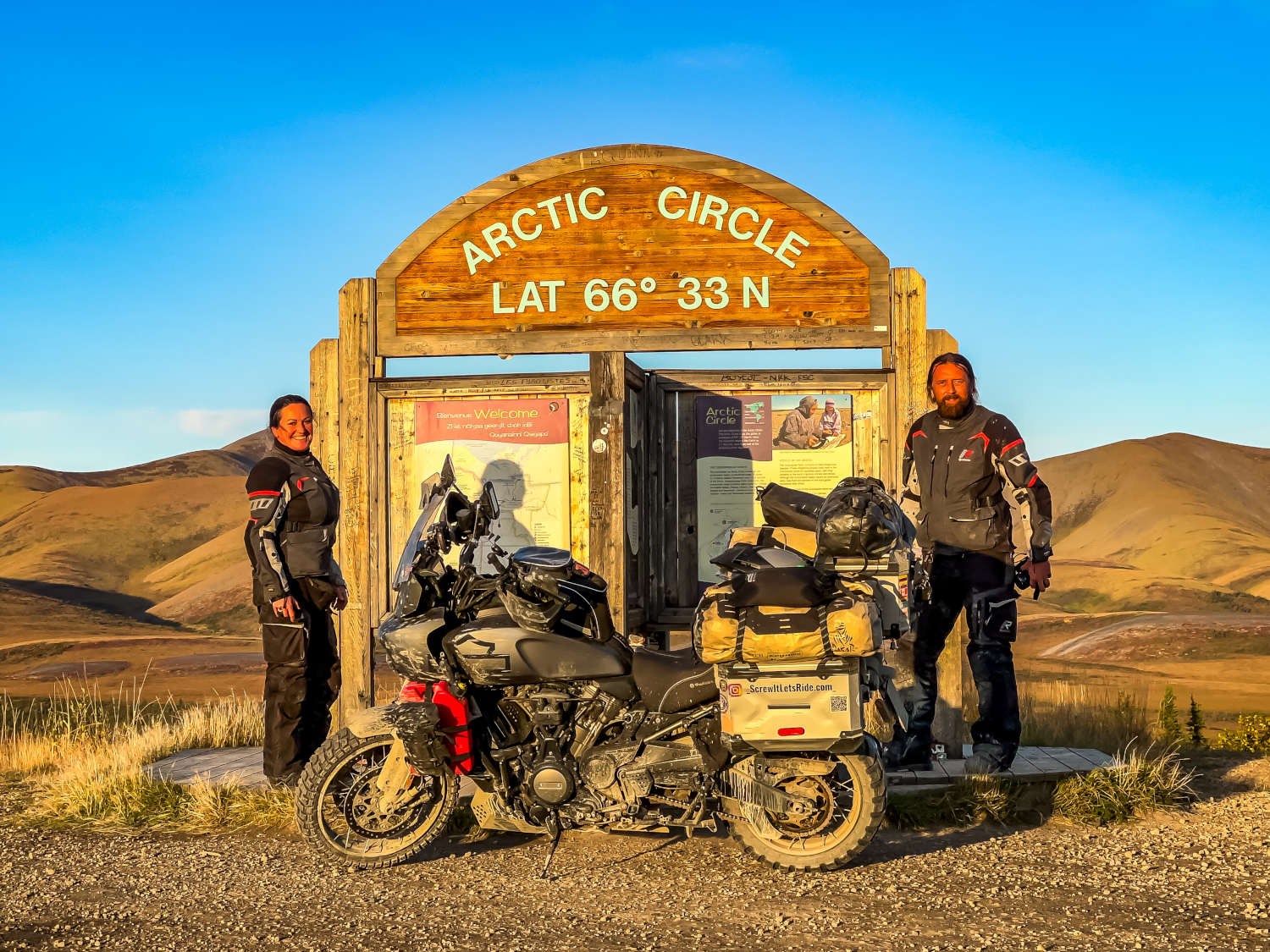
HAVE BIKE, WILL TRAVEL
Long-distance riding tips from a couple of motorcycle explorers who rode 99,000 over 18 months in their latest epic trip.
By Ela and Greg Kedzior
Taking a long motorcycle ride around the world is a dream for many bikers, offering the opportunity to experience diverse landscapes, cultures and experiences. It’s also an opportunity to get to know yourself better and experience your own adventure of a lifetime. Such an expedition, however, requires careful planning and preparation to ensure that the trip is safe, enjoyable and fulfilling.
Whether you are an experienced motorcyclist or a novice explorer, there are certain guidelines that apply to every long-distance rider. In planning our journey through the Americas, we took a great deal of care with our preparations, and would like to share what we learned with you. Here are 15 tips that we think will help you prepare for a long motorcycle expedition, no matter where you come from or where you are going.
1. Research and route planning
Before setting out, take plenty of time to plan the tour and check the route, including border crossings, visa requirements, temporary importation of your motorcycle – you will most likely require a CPD (Carnet de Passages en Douane) pass – and road conditions. Check the possibility of leaving your motorcycle in the country in case you need to return home. Plan a rough itinerary tailored to climate conditions; also check for extreme weather events that may take you by surprise in other parts of the world (for example, hurricanes and earthquakes). Build time into your itinerary so that you can remain flexible to accommodate unexpected detours or changes in plans.
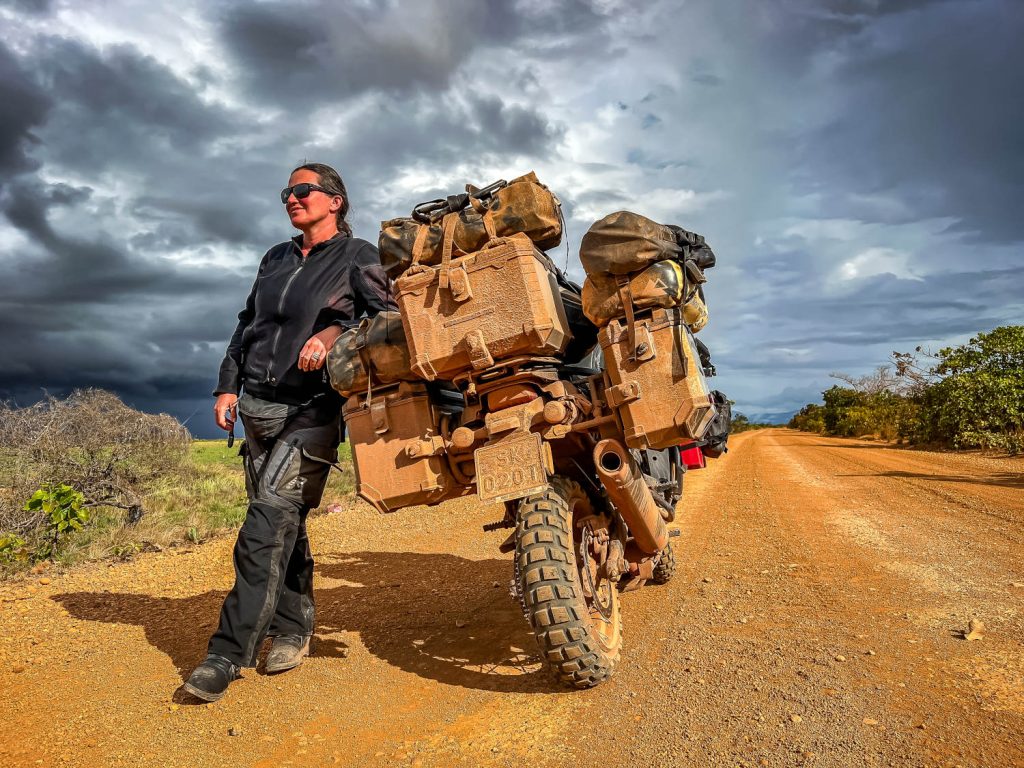
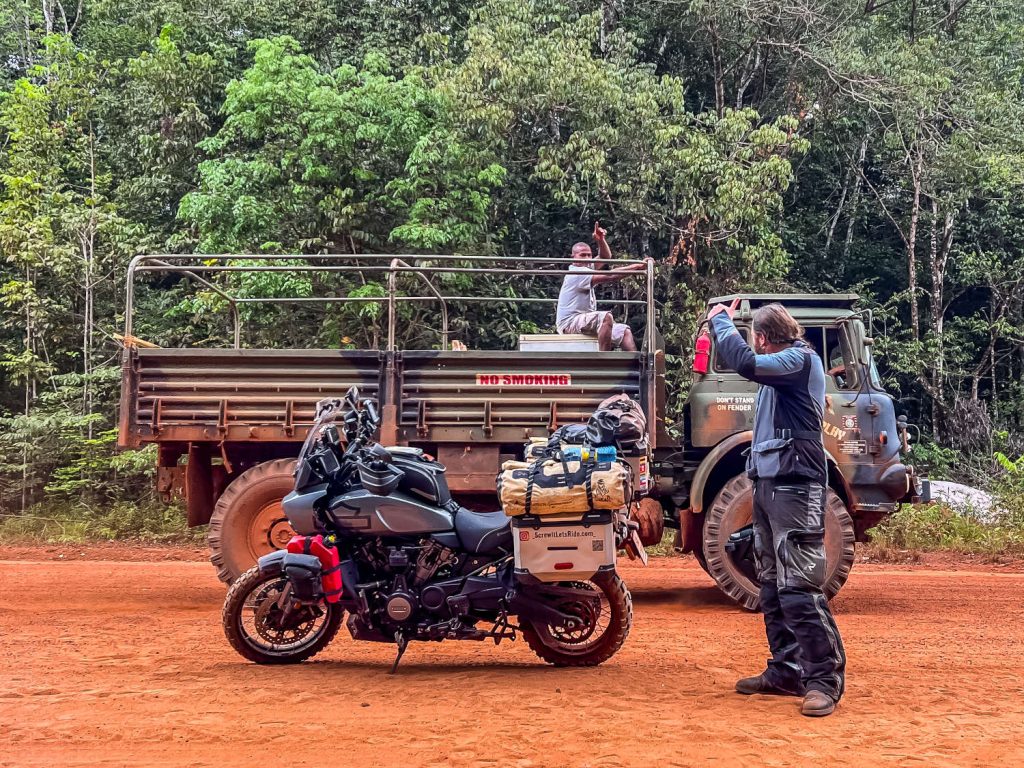
2. Maintenance and servicing
Make sure your motorcycle is in excellent condition by scheduling a comprehensive service before your travels. Check all essential components, such as tires, brakes, fluids and suspension, to minimize the risk of failure during the trip. The efficiency of your machine is crucial. If you start having doubts about whether to replace a component, do it – peace of mind is invaluable. If you don’t have them already, develop the skills for basic maintenance of your machine. It’s your best friend, and you need to look after it – in many cases on the road you can only depend on yourself. Consider additional accessories that will make the ride easier and more comfortable – you will spend many hours on your motorcycle each day, after all. Remember that the best security system for your machine is a motorcycle cover that does not arouse the interest of a potential thief.
3. Packing essentials
Pack lightly but efficiently, prioritizing essential items such as spare parts, tools, a first aid kit, camping gear and proper motorcycle attire. Consider the climate and terrain of the regions you will be travelling through. Remember to properly arrange your luggage on the motorcycle (it’s a good idea to weigh your bags and suitcases) and secure them properly. Also check the range of your motorcycle and the availability of fuel stations – an extra gasoline canister is sometimes an indispensable accessory
4. Documentation and insurance
Organize all necessary documentation, including your passport (make sure it’s well in date and has plenty of space for stamps), driver’s licence, motorcycle registration and international insurance. Keep physical and digital copies of these documents in separate, secure locations. Whenever possible, use copies of documents (we recommend laminating them) so as to avoid situations where originals might be confiscated for bribery.
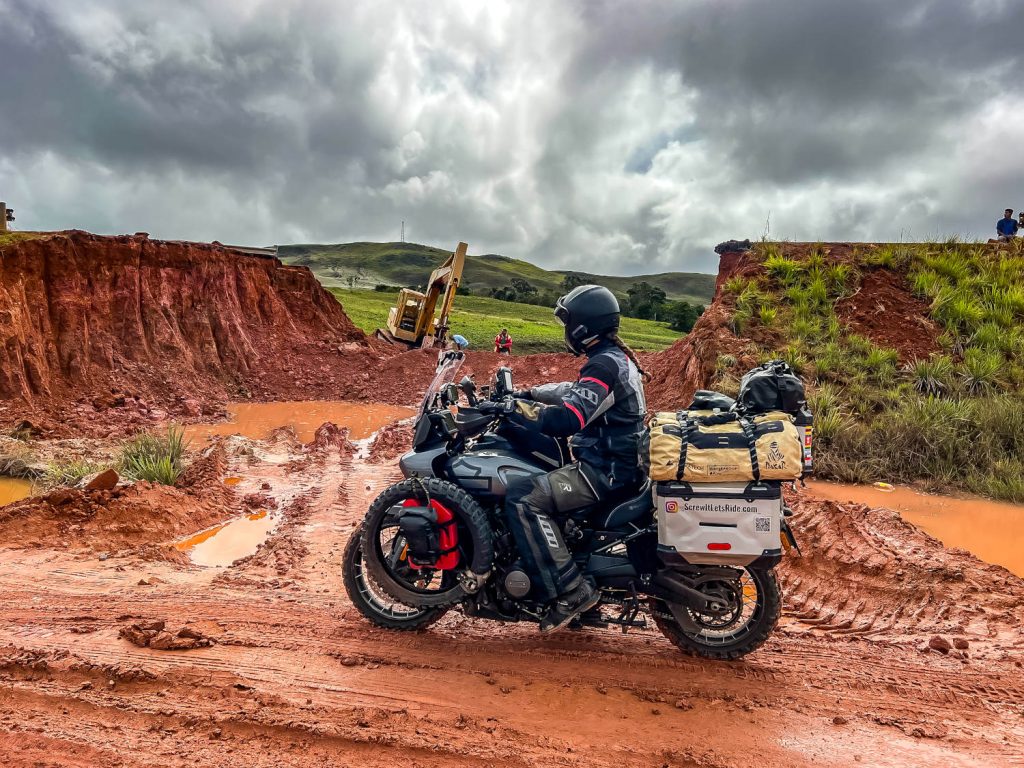
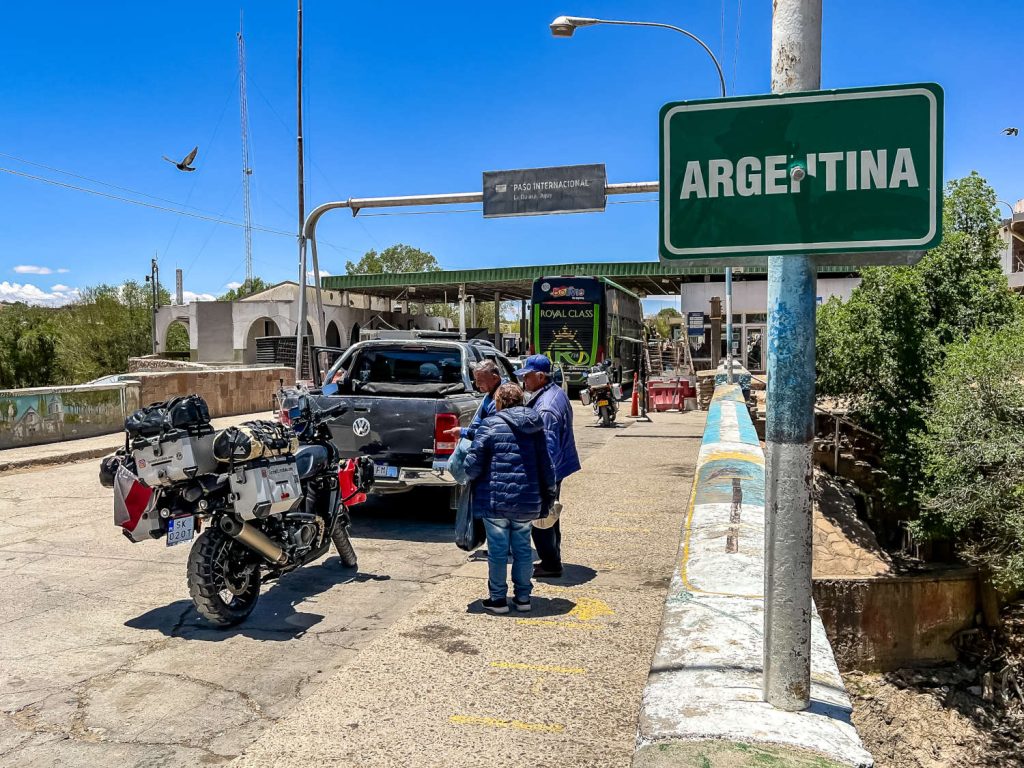
5. Protective equipment and training
Invest in quality protective gear, including a full-face helmet, an armoured jacket, gloves and motorcycle riding boots. In addition, consider investing in motorcycle expedition training to increase your awareness, skills and confidence. On the road, we are often faced with situations that we don’t encounter in a domestic environment, and being able to anticipate and deal with them will help ensure your safety.
6. Communication and navigation
Equip yourself with reliable communication devices, such as a satellite phone or GPS tracker, to stay in touch in remote areas and give you the ability to pinpoint your location if necessary. Download up-to-date offline maps and navigation apps to your smartphone as a backup. When travelling, we tend to use two different navigators, using different offline maps. Use your phone for navigation only in emergency situations, as it is particularly vulnerable to damage. Carry a backup phone with you so that you are not left unable to contact someone in an emergency.
7. Financial planning
Budget your trip wisely, taking into account fuel, accommodation, meals and unexpected expenses. Carry various payment methods, including cash in different currencies and credit/debit cards, and keep your bank informed of your travel plans to avoid any disruptions or unpleasant surprises. There are many different websites to assist in budgeting travel based on current prices in a particular country. It’s worth spending the first few hours in a new place scoping out prices in order to avoid overpaying.
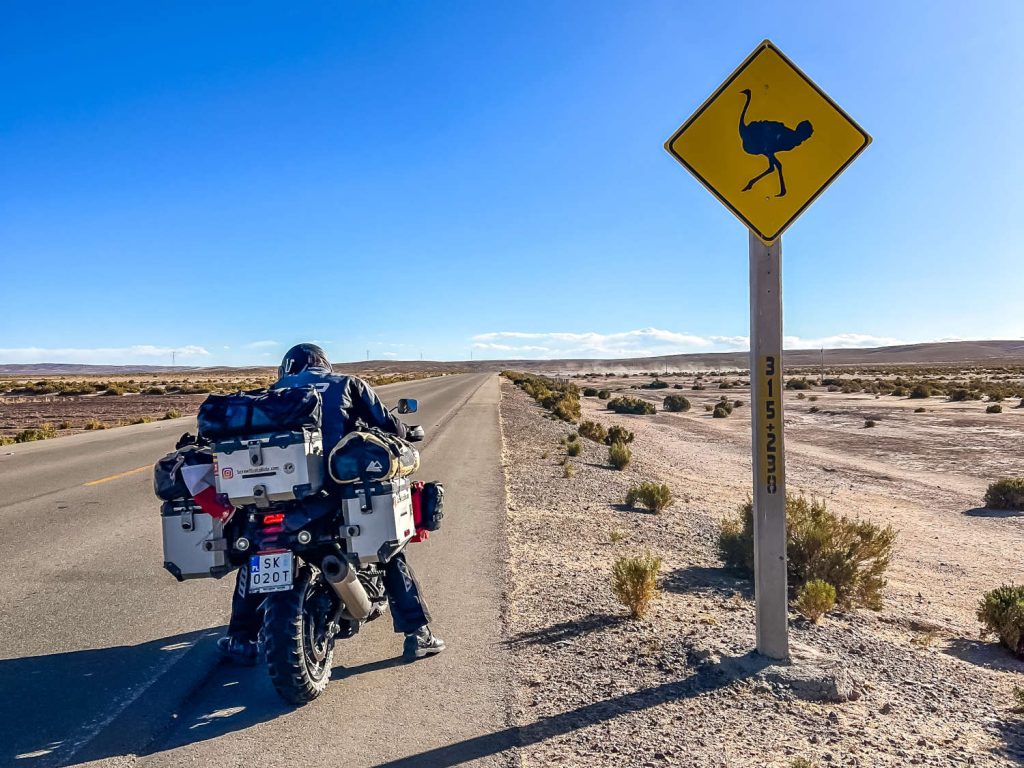
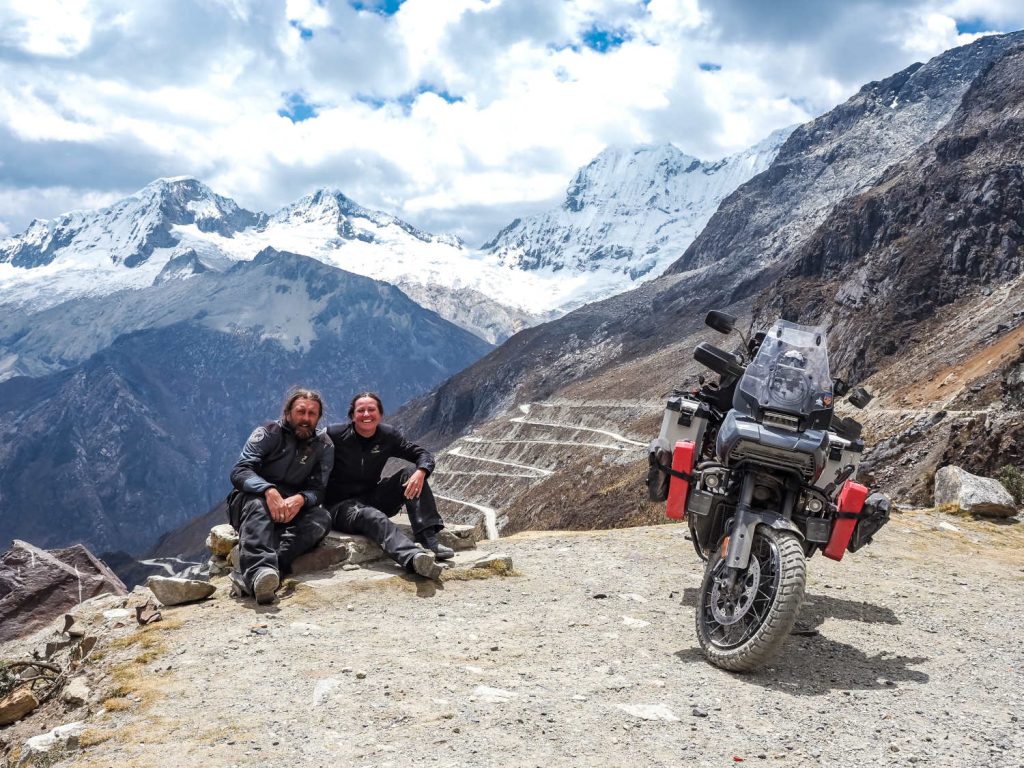
8. Health and well-being
When travelling, make your health and well-being a priority by making sure you stay properly hydrated, get adequate rest and exercise regularly. Prepare your first aid kit properly, pack any medications you’ll need and check healthcare options in the countries you visit. Make sure you are properly vaccinated against exotic diseases – in many countries this is also a formal requirement when crossing borders. It’s a good idea to have medicines with you for common ailments (headaches, stomach problems, muscle aches, etc.) so you can avoid wasting time searching for products locally. The contact lenses we use turned out to be only available on prescription or not at all in many places – fortunately, we had a supply with us.
9. Learn the lingo
Familiarize yourself with basic phrases in the languages spoken in the regions you will be travelling through. If you’re planning an extended stay in a region with one main language, it’s worth taking the time to learn that language – it makes locals very open to foreign visitors. That said, it’s usually best to steer clear of discussing religion and politics, to avoid generating a possible difference of opinion!
10. Emergency preparedness
Prepare for emergencies by taking a comprehensive roadside assistance kit with you (including tools, spare parts and tire repair supplies) along with a supply of water, some provisions, and emergency contact information. Familiarize yourself with the local emergency services and procedures in each country you visit. Prepare a list of authorized service centres in case you need specialized service for your bike. Before your journey, take a first aid course for accident victims – this is a very important part of your preparations.
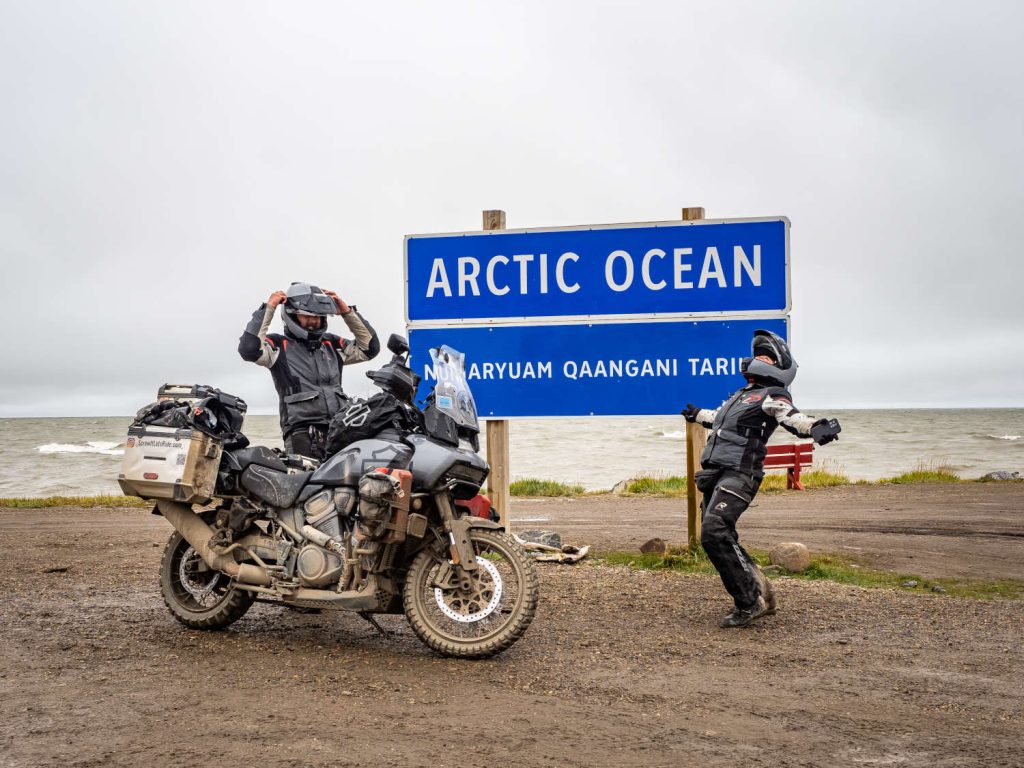
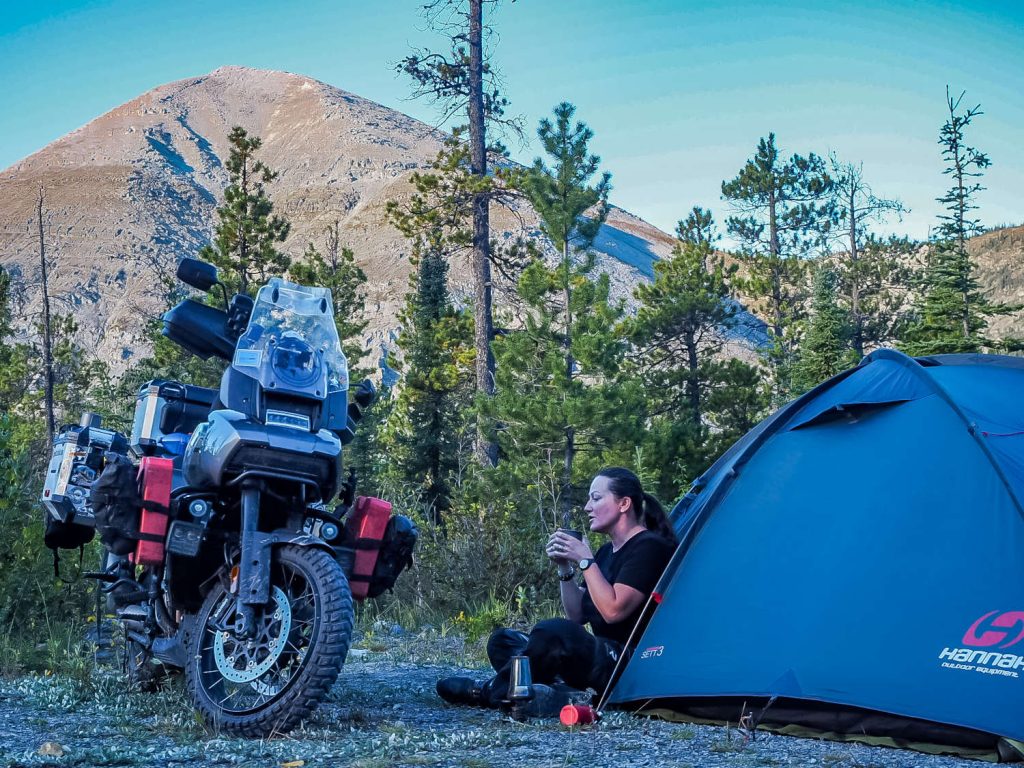
11. Watch the weather
Keep abreast of weather conditions along the route and plan your trip accordingly. Prepare for sudden changes by packing appropriate equipment such as rain gear, thermal layers and sun protection. Many regions of the globe have specific weather conditions to contend with. An app we often use is Windy, which works well in many parts of the world.
12. Accommodation
Be open to all lodging options, from campgrounds and hostels to hotels and guesthouses. Consider using online booking platforms or motorcycle-friendly hotel chains to ensure safe and comfortable accommodation during your trip. A good night’s sleep can often be the only form of relaxation on a road trip, so it’s worth taking the time to ensure it, whether you’re travelling with a tent or using hotels. A great app that we have discovered is iOverlander, which brings together all that important information you’ll need when on the road.
13. Social connectivity
Join online forums, social media groups or motorcycle clubs to connect with other motorcyclists who have embarked on similar journeys, or are familiar with the regions through which you will be travelling. Sharing experiences and tips can be invaluable in planning your trip and building a supportive community.
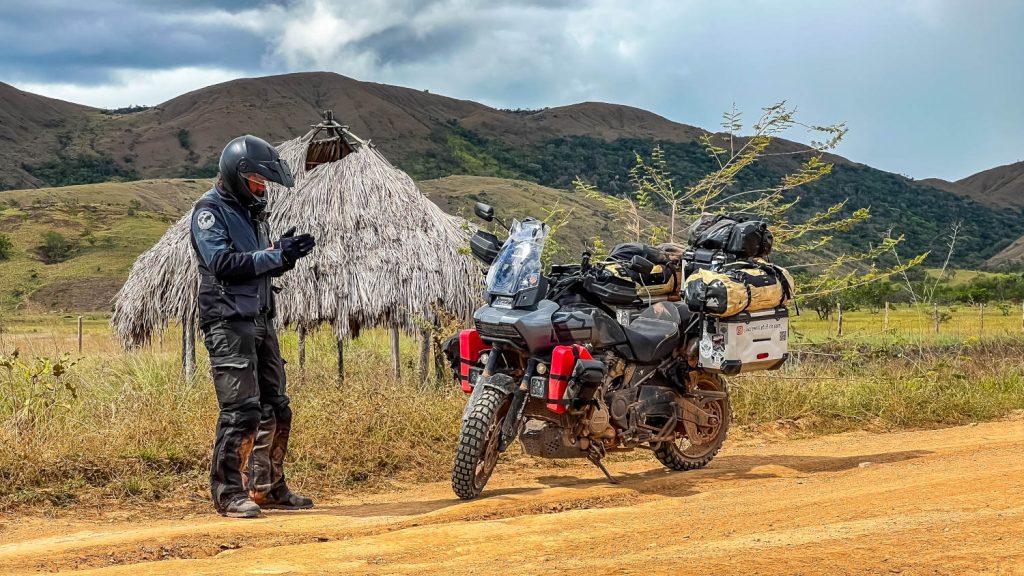
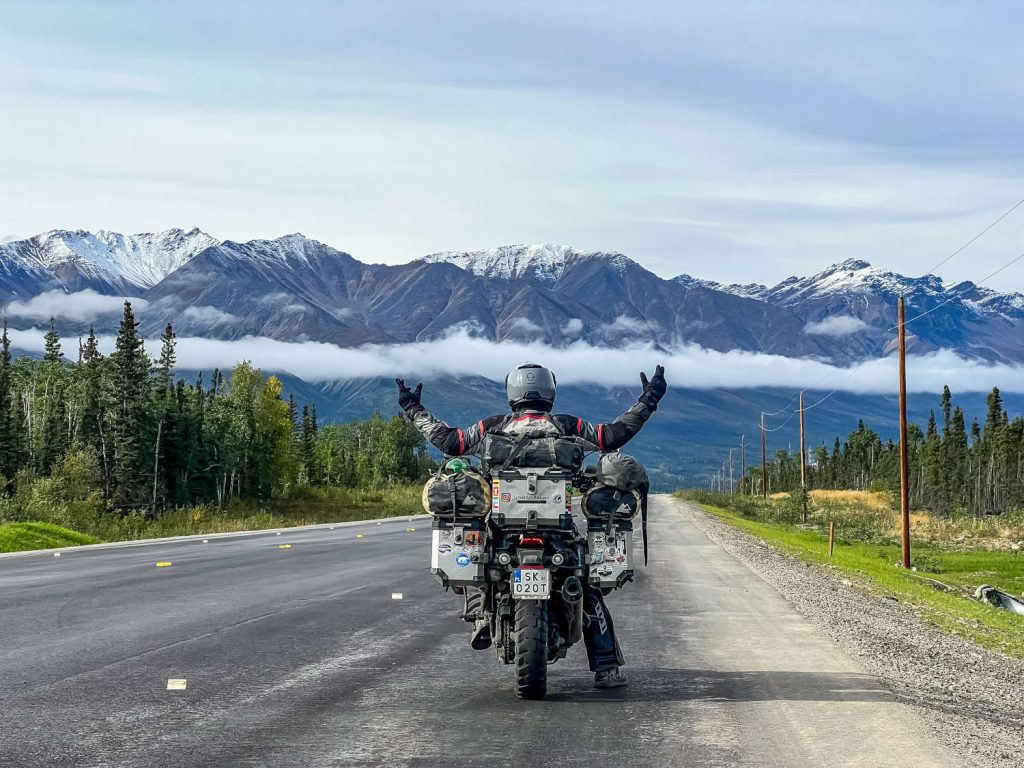
14. Local etiquette
Take time to learn about local laws, customs, traditions and taboos in each country you visit to avoid inadvertently causing any offense, misunderstanding or worse. Keep an open mind and respect cultural sensitivities regarding clothing, behaviour and interaction with locals.
15. Environmental responsibility
Practice responsible travel, minimizing your impact on the environment along the way. Properly dispose of waste, avoid single-use plastics and respect natural habitats and wildlife. Consider supporting environmentally friendly initiatives and local conservation efforts.
Setting off on a long motorcycle journey around the world is an exciting adventure that guarantees unforgettable experiences and discoveries. In properly preparing for your trip and maintaining a cautious and adaptable attitude, you can embark on your epic adventure with confidence and peace of mind, ready for the freedom of the open road. Safe travels!
Tags:
Read more tales from the Harley Owners Group!
2025 CANADIAN HOG RALLIES AND RIDING EVENTS
Stay tuned to this page for a listing of all of the 2025 HOG rallies and riding events in Canada. This page was last updated on December 20, 2024
Make life a ride and find your freedom
Exclusive discount for HOG Canada members with Freedom Biker Tours
Vagabond Rider: Hope and prep
Suggestions for how to prepare for inevitable inconveniences
